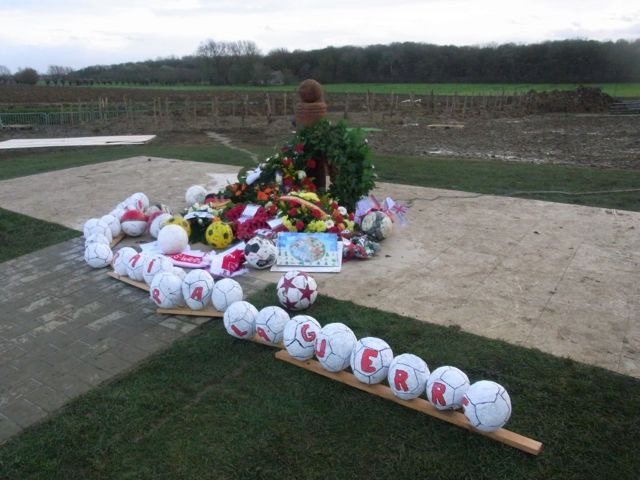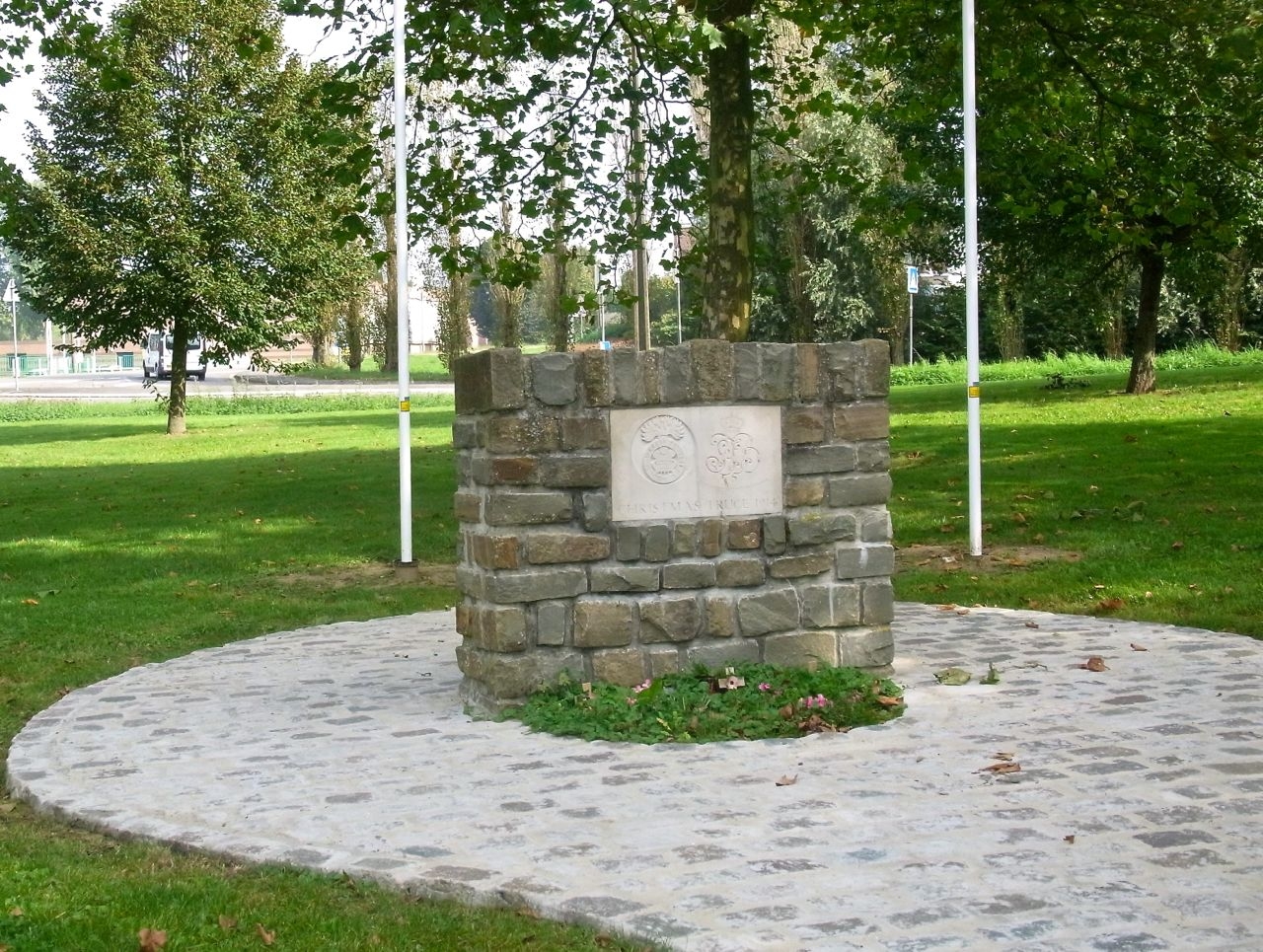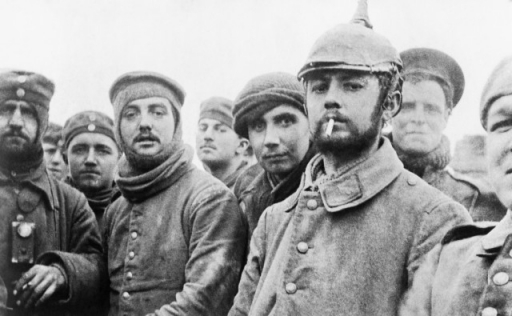The historic ceasefires along the Western Front, today remembered as the Christmas truce, took place on Christmas Day 1914 when gunfire briefly gave way to exchanges of gifts and greetings in ‘no-man’s land.’
Those who witnessed or participated in these extraordinary events have left vivid accounts of their meetings with the other side during the first Christmas of the Great War.
The overtures for a truce started on Christmas Eve, when the singing of the carol ‘Stille Nacht’ (Silent Night) in the German trenches, was followed by shouts of ‘come over Tommy.’
Tentative approaches developed into a series of unofficial ceasefires along the Western Front in Belgium and France.
‘A DAY UNIQUE IN THE WORLD’S HISTORY’ began Captain Robert Hamilton, in his diary entry for December 25th, describing one of the best known truces at Ploegsteert, which he helped to arrange after an approach from the Germans.

Ploegsteert today: balloons placed by schoolchildren at UEFA’s new Christmas truce memorial, spelling out the words ‘ne faites pas la guerre’ – don’t make war (Photo: Centenary News)
It was at ‘Plugstreet’ that the cartoonist, Bruce Bairnsfather, described an episode that has become central to the narrative of the truce, and the focus for many of the Centenary events in 2014, prompting fresh debate about the exact nature of what took place.
“Around noon, a football match was suggested,” Bairnsfather said.
“Someone had evidently received a deflated football as a Christmas present.”
Despite the frozen surface and surviving turnips, a football was kicked about.
According to Lieutenant Kurt Zehmisch, two English soldiers brought a football to the German trenches. As he put it: “This was all so wonderful and strange.”
Shock
Further south, near Neuve Chapelle in France, General Sir Walter Congreve wrote to his wife of the ‘extraordinary state of affairs’ he’d found when delivering presents to British troops in the trenches.
His letter, recently discovered in the archives of Staffordshire County Council in the UK, reveals his shock at the scale of the fraternisation: “In that particular place they have been walking about together all day giving each other cigars & singing songs.
“Officers as well as men were out & the German Colonel himself was talking to one of our Captains.”

Memorial to the Christmas truce at Freilinghien, near Armentières, France (Photo: Centenary News)
But amid the expressions of peace and goodwill, the violence went on elsewhere along the Western Front.
At Ploegsteert, Captain Robert Hamilton remained wary, doubling his sentries at midnight. Even as the truce continued, he wrote: “I hope the Germans are not cooking up some devilish plot.”
Senior military commanders issued orders to prevent any widespread repeat of the Christmas truce in the following years of the First World War.
So the events of December 24-26th 1914 continue to stand out, in the words of author Sir Arthur Conan Doyle, as “one human episode amid the atrocities which have stained the memory of war.”
Certainly few anniversaries in the opening year of the Centenary have inspired as many commemorations. The modern British and German Army football teams even met for a ‘replay’ at Aldershot on December 17th 2014, with the British side winning 1-0.
A full transcript of General Sir Walter Congreve’s letter can be found on the Staffordshire Great War website.
Images courtesy of Imperial War Museum © IWM (Q 11745); Centenary News
Sources: Andrew Hamilton (Diary of Captain Robert Hamilton); Staffordshire County Council Archives (extracts from General Sir Walter Congreve’s letter); Belgian Tourist Office – Brussels & Wallonia
Posted by: Peter Alhadeff, Centenary News
